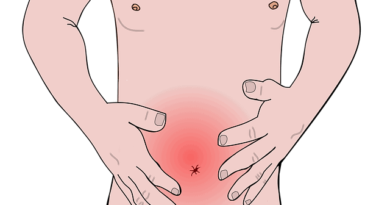8 Foods That Increase the Risks of Heart Attacks
Heart disease continues to be a major worldwide health problem, accounting for countless deaths each year. Eating habits are one of the most important risk factors for heart attacks. This article looks at eight typical meals that have been related to an elevated risk of heart disease. Individuals may make sensible choices to emphasize heart- friendly diet and minimize their risk of heart diseases by raising knowledge about these nutritional triggers and their negative effects. Below are the 8 foods that increase the risks of Heart Attacks.
8 Foods That Increase the Risks of Heart Attacks
Read also
- 12 Ways To Manage Depression Without Medication
- 7 Habits That Drain Your Energy
- 8 Foods That Increase the Risks of Heart Attacks
- 7 Healthy Tips for Teenagers
- What is Granola? Is Granola Healthy?
- Red clover and its medicinal properties
1. Trans fats
Trans fats are chemically processed fats present in a variety of processed and fried meals. They increase levels of LDL (bad) cholesterol while decreasing levels of HDL (good) cholesterol, increasing the risk of heart disease. Commercially baked items such as cookies, cakes, and pastries, and even some fats and fried fast meals, are rich in trans fats.
2. Saturated Fats
Saturated fats are present in animal products such as red meat and full-fat milk and yogurt, as well as tropical oils such as palm and coconut oil. Saturated fat consumption can raise LDL cholesterol levels, leading to diabetes and heart attacks. To preserve heart health, restrict your diet of oily cuts of meat, dairy products and butter.
3. Processed meat
Bacon, sausages are delicious meats, for example, but are heavy in salt, preservatives, and harmful fats. These variables can raise blood sugar levels and grow the risk of heart failure. Regular use of processed meats has been linked to an increased risk of heart attacks along with other heart-related problems, according to research.
4. Sugary beverages
Sugar-sweetened beverages, such as soda, energy drinks, and sugar- sweetened fruit juices, can lead to obesity, diabetes, and heart disease. Sugar consumption causes weight gain, high insulin levels, and swelling, all of which are linked with a higher chance of heart attack.
Natural Beauty Tips – Beauty Tips
5. High Sodium Foods
Excess intake of salt may raise blood pressure, putting extra strain on the heart. Processed and packaged foods, canned soups, and some sauces are rich in salt. Lowering your salt usage can help you avoid heart disease and other heart-related conditions.
6. Refined Carbohydrates
Refined carbohydrates, such white bread, white rice, and sweetened cereals, can cause a blood sugar boost. A high-refined-carbohydrate lifestyle can lead to a lack of insulin, swelling, and obesity, all of these being risk factors for heart disease.
7. High Fructose Corn Syrup
High-fructose corn syrup (HFCS) is a sweetener that is widely found in processed foods and sugary beverages. Consumption of high fructose corn syrup has been linked to a higher probability of obesity, diabetes of any kind, and heart disease.
8. Excessive Alcohol
While a little alcohol may have some heart advantages, excessive alcohol consumption can result in high blood pressure, muscle damage, and a higher risk of heart attack. When drinking alcoholic drinks, it is important to adopt balance while considering personal health risks.
Conclusion
We must be conscious of what we eat since food plays an essential part in the growth and reduction of heart disease. Trans fats, saturated fats, processed meats, sugary beverages, high-sodium meals, refined carbs, high-fructose corn syrup, and excessive alcohol consumption can greatly increase the risk of heart attack. A heart- healthy diet high in fruits, vegetables, whole grains, lean meats, and healthy fats can help people safeguard their hearts health and live longer, healthier lives.
The above article is only for informational and educational purpose and not for the purpose of rendering medical advice. The contents of this website are not intended to substitute for professional medical advice, diagnosis or treatment. Please consult your doctor or other healthcare professional regarding any medical or health related diagnosis or treatment options.
Learn about Supply Chain Management – CLICK HERE
See Also :
- 12 Ways To Manage Depression Without Medication
- 7 Ways To Overcome Laziness To Exercise
- 7 Habits That Drain Your Energy
- 8 Foods That Increase the Risks of Heart Attacks
- 7 Healthy Tips for Teenagers
- What is Granola? Is Granola Healthy?
- Red clover and its medicinal properties
- 7 Home Remedies To Relieve Constipation Naturally
- 5 Easy Ways to Control Overeating Desire
- Heart Attack At A Young Age





